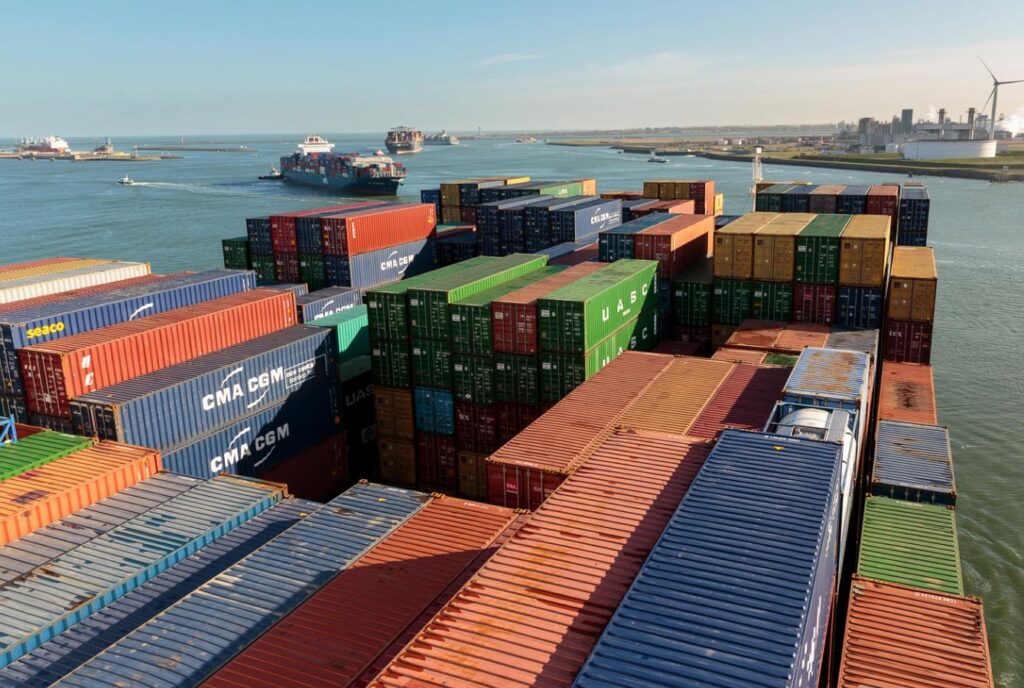Shipping is an essential aspect of conducting business, whether you are a small online retailer or a large multinational corporation. Understanding standard shipping terms can help you make informed decisions about how to best transport your goods to your customers. This blog post will cover the 5 most common shipping terms you should know. From shipping incoterms and freight terms to shipping methods and transit times, these terms are essential for anyone involved in the shipping process. So whether you are a seasoned pro or just getting started in the world of shipping, these terms are sure to come in handy.
Table of Contents
Shipping is an essential aspect of conducting business, whether you are a small online retailer or a large multinational corporation. Understanding standard shipping terms can help you make informed decisions about how to best transport your goods to your customers. This blog post will cover the 5 most common shipping terms you should know. From shipping incoterms and freight terms to shipping methods and transit times, these terms are essential for anyone involved in the shipping process. So whether you are a seasoned pro or just getting started in the world of shipping, these terms are sure to come in handy.
Here I will describe the 5 most common shipping terms that anyone should know, and these are the must-haves that will do your business well at some stage. So, be in touch till the end;
5 Most Common Shipping Terms:
1. Incoterms:
Incoterms stands for (International Commercial Terms), is a set of standardized terms that define the responsibilities of the buyer and seller in international trade. Incoterms communicate the terms of the sale, including who is responsible for paying for transportation, insurance, and other costs. There are 11 incoterms, each of which has specific rules and guidelines. Understanding and correctly using incoterms is essential to avoid misunderstandings and disputes.
2. Freight terms:
Freight terms are used to describe the conditions under which goods are shipped. The most common freight terms are FOB (Free On Board), CIF (Cost, Insurance, and Freight), and EXW (Ex Works). FOB means that the seller is responsible for the cost of transportation until the goods are loaded onto the vessel at the port of shipment. CIF means the seller is responsible for transportation, insurance, and other costs until the goods are delivered to the destination port. EXW means the buyer is responsible for arranging and paying for all transportation and other costs associated with getting the goods from the seller’s location.
3. Shipping methods:
There are many ways to ship goods, including by air, sea, land, and multimodal (a combination of these methods). Each shipping method has advantages and disadvantages, including speed, cost, and the type of goods that can be shipped. For example, air shipping is faster but more expensive than sea shipping, while land shipping is slower but often more cost-effective. Choosing the proper shipping method is based on your needs and budget.
4. Transit Times:
Transit times refer to the amount of time it takes for goods to be shipped from the point of origin to the final destination. Transit times can vary widely depending on the shipping method, the distance, and other factors. When planning your shipments, it is essential to consider transit times, as longer transit times can lead to delays and increased costs.
5. Tracking:
Tracking is monitoring the movement of goods from the point of origin to the final destination. Tracking is typically done using a tracking number or barcode, which allows you to see the location and status of your shipment at any given time. Tracking is essential for ensuring that your goods arrive at their destination on time and in good condition.
Conclusions:
Overall, understanding these 5 standard shipping terms is essential for anyone involved in the shipping process. From incoterms and freight terms to shipping methods and transit times, these terms are used to communicate the terms of the sale and ensure that goods are shipped efficiently and effectively. Understanding these terms enables you to make informed decisions about how to best transport your goods and keep your customers happy.


More Stories
How to Sell Gold for the Best Price: A Comprehensive Guide
Luxury Fake Watches: Are They Worth the Hype? Tips, Tricks, and Pitfalls
The Ultimate Guide to Home Inspectors: What You Need to Know